Data acquisition and device control with Scilab.
Desciription
Scilab is a freeware alternative to MATLAB. For low-cost data acquisition and device control a nice Arduino toolbox is available.
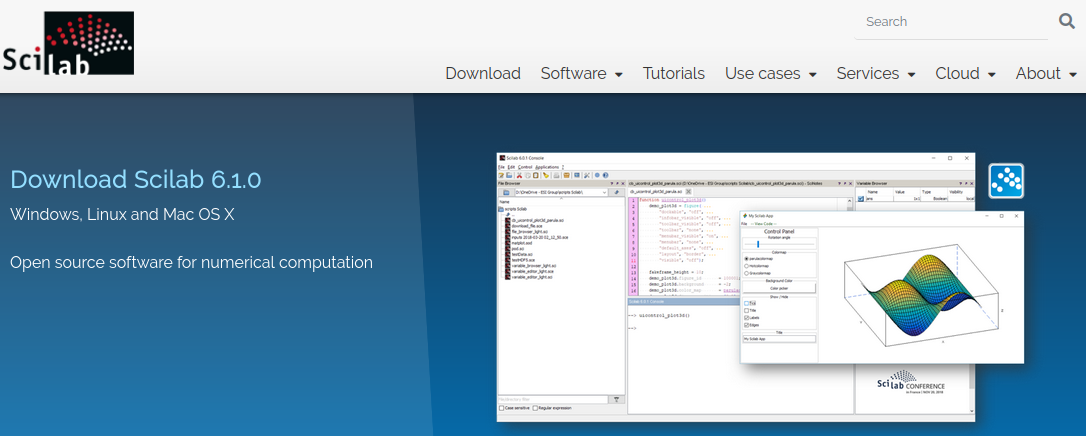
This site presents a Mbed port which allows to use Mbed boards (equipped with Arduino header) rather than Arduino to import real time data into Scilab and to control real equipment witch Scilab.

Installation
- Install Scilab to your PC, if not done yet.
- Launch Scilab and install the Arduino toolbox by executing the following command from the Scilab console:
--> atomsInstall("arduino")
Controlling Mbed's digital output from Scilab
- In Xcos open
examples/Arduino1.zcos
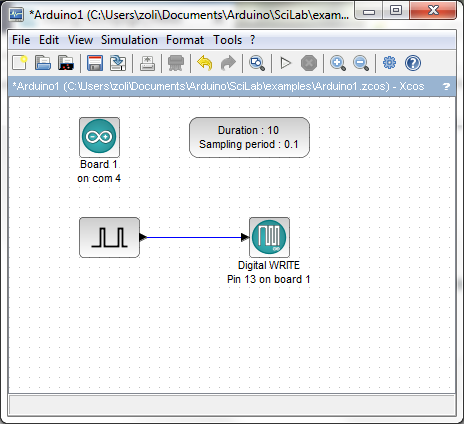
- Double click on the
Boardsetup block and replace the serial port number with mbed's actual virtual serial port number.
- Double click on the
Digital WRITEblock and set Digital Pin to 13 (D13 is connected to LED1).
- Start simulation and LED1 on the Mbed board should start blinking.
Reading and displaying Mbed's analog input
- In Xcos open
examples/Arduino2.zcos
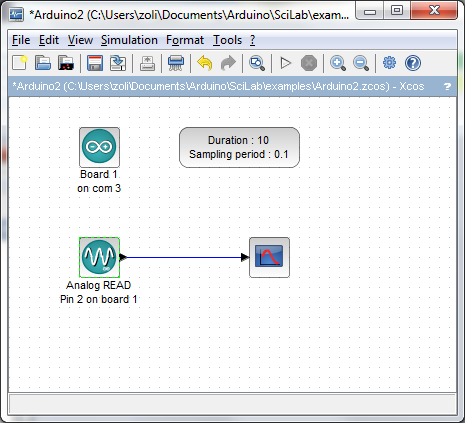
- Double click on the
Boardsetup block and replace the serial port number with mbed's actual virtual serial port number.
- Double click on the
Analog READblock and set Analog Pin to 2.
- Start simulation and a graph should appear showing the analog signal measured on Mbed's pin A2.
NOTE: Currently, there is bug in the toolbox ARDUINO_ANALOG_READ_sim function (I have reported to Scilab) so the analog readings are not correct.
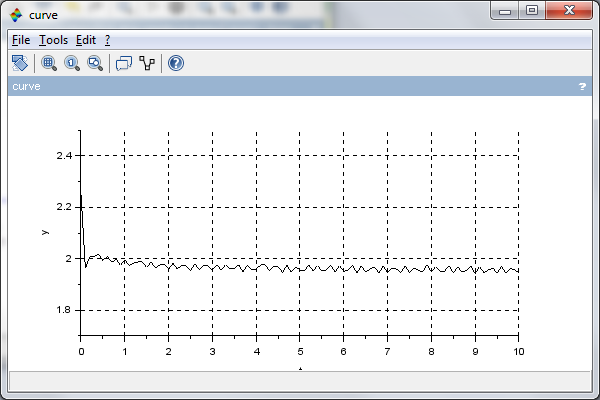
PID controller
- In Xcos open
examples/Arduino9.zcos
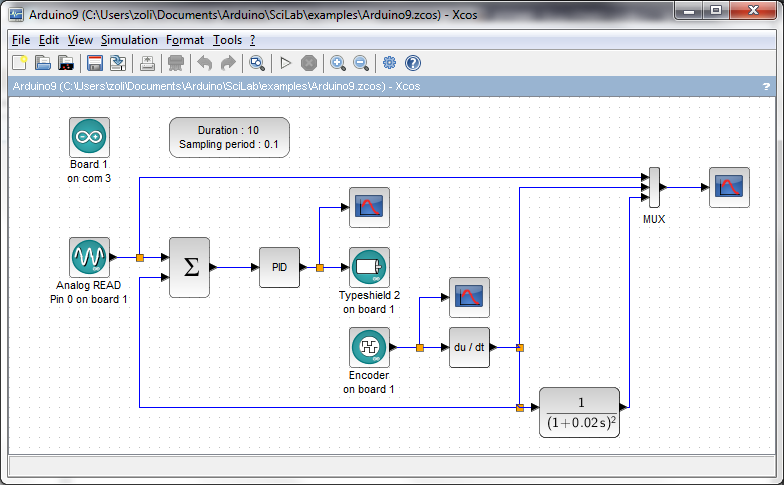
Diff: ScilabSerial/Encoder.cpp
- Revision:
- 0:295b7e1c12f3
--- /dev/null Thu Jan 01 00:00:00 1970 +0000
+++ b/ScilabSerial/Encoder.cpp Mon Jan 18 19:51:22 2021 +0000
@@ -0,0 +1,65 @@
+#include "Encoder.h"
+
+/**
+ * @brief The Encoder class
+ * @note Rotary encoder with three operating modes
+ */
+Encoder::Encoder(PinName pinA, PinName pinB, int mode) : _position(0)
+{
+ switch (mode) {
+ case 1:
+ _chanA = new InterruptIn(pinA);
+ _chanA->rise(callback(this, &Encoder::onRiseMode1));
+ _chanB = new InterruptIn(pinB);
+ break;
+
+ case 2:
+ _chanA = new InterruptIn(pinA);
+ _chanA->rise(callback(this, &Encoder::onChangeMode2));
+ _chanA->fall(callback(this, &Encoder::onChangeMode2));
+ _chanB = new InterruptIn(pinB);
+ break;
+
+ case 4:
+ _chanA = new InterruptIn(pinA);
+ _chanA->rise(callback(this, &Encoder::onChangeMode2));
+ _chanA->fall(callback(this, &Encoder::onChangeMode2));
+ _chanB = new InterruptIn(pinB);
+ _chanB->rise(callback(this, &Encoder::onChangeMode2));
+ _chanB->fall(callback(this, &Encoder::onChangeMode2));
+ break;
+ }
+}
+
+Encoder::~Encoder()
+{
+ delete _chanA;
+ delete _chanB;
+}
+
+void Encoder::onRiseMode1()
+{
+ int b = _chanB->read();
+ if (b)
+ _position--;
+ else
+ _position++;
+}
+void Encoder::onChangeMode2()
+{
+ int a = _chanA->read();
+ int b = _chanB->read();
+ if ((a && !b) || (!a && b))
+ _position++;
+ else
+ _position--;
+}
+void Encoder::onChangeMode4()
+{
+ int a = _chanA->read();
+ int b = _chanB->read();
+ if ((a && !b) || (!a && b))
+ _position++;
+ else
+ _position--;
+}